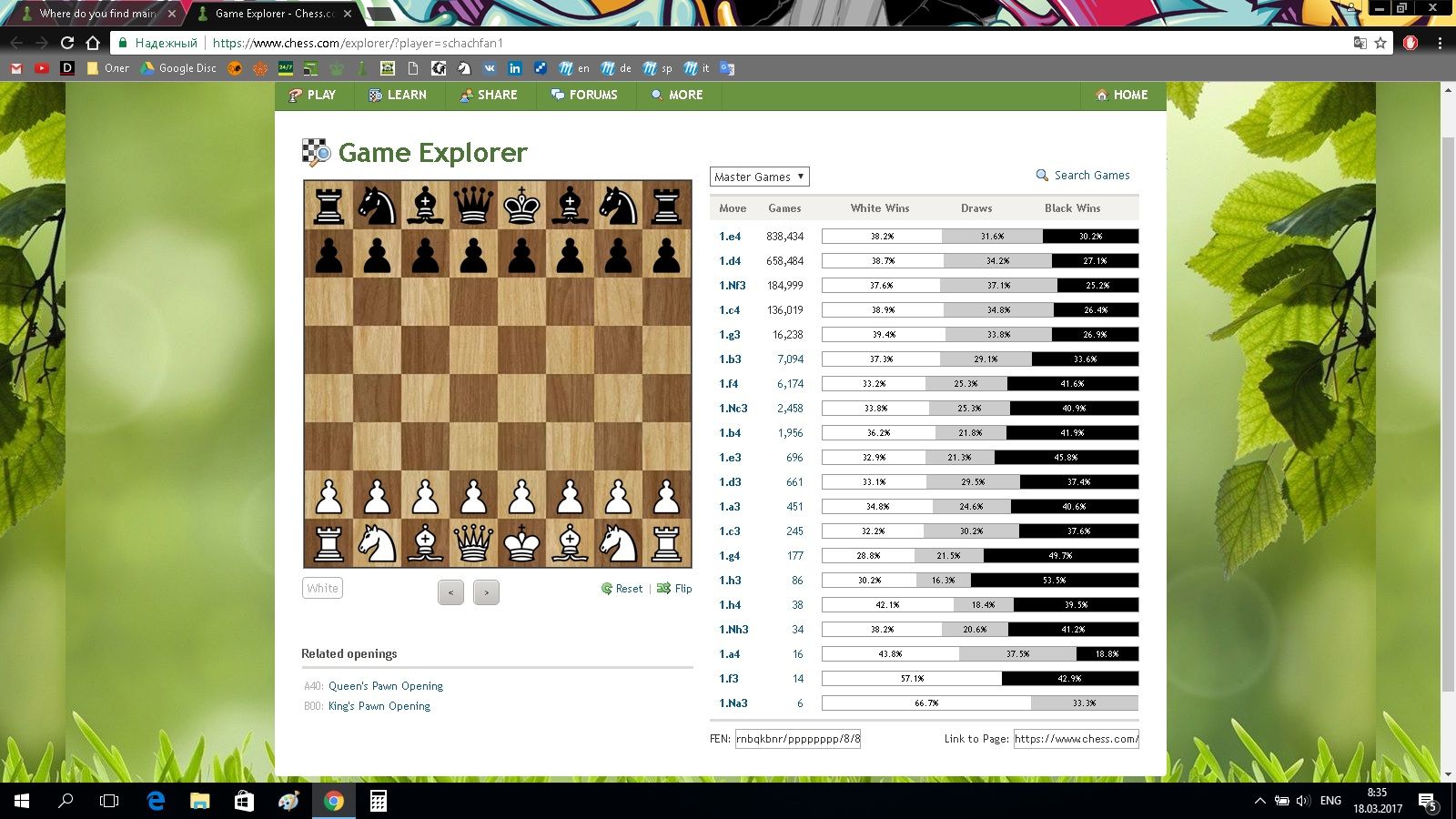Or a list of opening theory?
Where do you find main lines of openings to memorize

... you can start out with the "starting out" books, ...
For a few openings, newer "First Steps" books have been published.

Hey guys. Where do you find main lines to memorize? Like, if the opponents move this, you will move this. It's like a list of an opening repertoire.
Personally, for new possibilities with openings I'm not familiar with:
1. I'll look through Fundamental Chess Openings, Nunn's Chess Openings, or even Reuben Fine's old Ideas Behind the Chess Openings if I want to explore an opening I'm not familiar with for basic understanding of the goals of the openings and their variations.
I do this knowing that I'm going to be out of the book most of the time by around the 7th move so I know I need a set of general guidelines rather than memorizing long lines.
2, Next, I'll analyze the moves using Chess King's ($27.95 at Amazon) huge GigaKing Database, where I can make book or non-book moves at any position, search the database, and see how many games did the same and where each side decided to attack.
This eliminates for me stupid ideas I tried out and shows me that in certain positions I should be thinking of pawn storming the middle instead of K-side as I was thinking, etc.
3. Then, I'll play some relatively quick games with the freebie Lucas Chess where I can set up an engine to play around 1200, then 1300, 1400, 1500, etc. as I get more familiar with the opening. This way I can take-back stupid moves and quickly see what else I can do. I can also set up the engine to select from among the top few best moves it evaluates so there's some randomness to the games or I can set it up to play slightly better, equal, or worse than I am playing. I can also set it up so that a certain number of initial moves are made so I can arrive at the position I want to explore.
4. If I like the opening, I'll look for book recommendations, go on Amazon and look for "good" or better quality used books on that opening.
5. Then it's time to trot it out against real opponents and, if I don't make my too-frequent blunders, I usually get out of the opening to reach a playable middlegame.

In a 2006 GM John Nunn book, in connection with opening study, it is stated that, if a "book contains illustrative games, it is worth playing these over first".
"... I feel that the main reasons to buy an opening book are to give a good overview of the opening, and to explain general plans and ideas. ..." - GM John Nunn (2006)
In one of his books about an opening, GM Nigel Davies wrote (2005), "The way I suggest you study this book is to play through the main games once, relatively quickly, and then start playing the variation in actual games. Playing an opening in real games is of vital importance - without this kind of live practice it is impossible to get a 'feel' for the kind of game it leads to. There is time enough later for involvement with the details, after playing your games it is good to look up the line."
https://www.chess.com/article/view/3-ways-to-learn-new-openings
"... A remark like 'games are rarely decided in the opening' does not really do justice to the issue. ... even if an initial opening advantage gets spoiled by subsequent mistakes, this doesn't render it meaningless. In the long run, having the advantage out of the opening will bring you better results. Maybe this warning against the study of openings especially focuses on 'merely learning moves'. But almost all opening books and DVD's give ample attention to general plans and developing schemes, typical tactics, whole games, and so on. ..." - IM Willy Hendriks (2012)

Hey guys. Where do you find main lines to memorize? Like, if the opponents move this, you will move this. It's like a list of an opening repertoire.
I have a lot of resources, including about six shelf feet of opening monographs and opening encyclopedias, but this is what I use most often: http://www.chesscentral.com/fritz-powerbook-2017-chess-database-software-on-dvd-and-capablancas-my-chess-career-e-book/

Chessbase and stockfish or other engines. When I want to prepare, I put the lines I want to learn into the computer and it will spit out several variations of the move as well as providing analysis.

How about the analysis of the chess.com?
You mean Explorer?
I use it for correspondence, but mostly to try to anticipate what my opponents might be thinking.
The stats in PowerBook are vastly more reliable. I've folund lines that look really good in Chess.com's Explorer, according to the stats, but a quick glance at PowerBook shows that the line hasn't been played since 2009. Looking at the latest game in the line published in Informant reveals why.
I should say, though, that I don't memorize openings. I did that twenty years ago, and it led to more losses than wins. I seek to understand the moves, then I can usually find them when needed.
I do memorize whole games, especially games in openings that I play.

Not sure about Stockfish. If you want to see how often the variations are played, simply click on the "Explore Openings" on your Home page on this chess site


You're all stupid. Just download Chess Repertoire from your app store on your smartphone and all you're sorted.








Hey guys. Where do you find main lines to memorize? Like, if the opponents move this, you will move this. It's like a list of an opening repertoire.